#ancient greek hymns
Text
Hellenic Gods Fact Sheets and Hymns: Dionysus
Dionysus
Other Names: Bacchus, Zagreus, Liber
Epithets: Bakkhos (frenzied), Bromios (the roaring), Eleutheros (the liberator), Meilichios (the mild/gracious), Maenoles (the mad), Nyctelius (of the night), Nyctipolos (night-stalker), Staphylites (of the grape), Theoineos (god of wine), Agathos Daimon (good spirit), Oenops (wine-faced), Antheos (the blooming), Kisseus (of the ivy), Kittophoros (ivy-bearer), Dimetor (twice-born/of two mothers), Dimorphos (two-formed), Dithyrambos (of the dithyramb), Areios (warlike), Kryphios (hidden), Karpios (of the harvest), Hyes (of moisture/the dripping), Ekstatophoros (bringer of ecstasy), Boukeros (bull-horned), Aigobolus (goat-slayer), Melanaegis (of the black goat-skin), Lysios (loosener/deliverer), Lenaeus (of the wine-press), Limnaios (of the marsh/liminal), Psilas (giver of wings), Psilax (uplifted on wings), Soter (savior), Khthoinios (of the Underworld), Dendrites (of trees), Eubouleos (of good counsel), Polymorphos (many-formed), Khryphion (hidden), Khoreutes (the dancer), Melpomenus (singer/of the tragedy play), Phleon (the luxuriant), Omadios/Omaphagos/Omestes (flesh-eater), Bassareus (the fox), Androgynos (androgynous), Agronios (wild, savage), Oinops (wine-dark/wine-faced).
Domains: Wine, ritual ecstasy and trance, festivals and revelry, pleasure, madness, hallucinations, intoxication, liberation, fruit, androgyny, GNC and LGBTQ+ people, viticulture, theater and choral songs, life-force, reincarnation.
Appearance: He appears to me as an androgynous and beautiful young man with long, curly hair that flows over his shoulders (it’s usually dark brown but seems to change color, being occasionally blond, black, strawberry, etc.). He has wild eyes that are vine-green or the pinkish-purple of grapes, and they’re usually either bright and laughing or disturbingly mad-looking. He typically has ruddy cheeks and a bright smile. He’s usually not wearing much beyond a cloth draped over his body (in white or purple) and/or a leopard pelt, but sometimes appears in in casual modern clothing with a leopard-print jacket. He often wears a grape headdress, and he sometimes has horns resembling a bull’s, ram’s, or goat’s. His laughter is both musical and utterly insane. His aura is the reddish-purple of grapes.
Sacred Days and Festivals: Greater/City Dionysia (10-17 Elaphebolion). Lesser/Rural Dionysia (10 Poseideon). Lenaia (12-15 Gamelion). Anthesteria (11-13 Anthesterion). Oskophoria (8 Pynapsion). Haloa (26 Poseideon). Agrionia (nocturnal women’s festival).
Symbols/Attributes: Grapes, thyrsus, masks, drinking cups, ivy leaves, tambourine, winnowing basket, honey, phallus, animal skins, leopard-print fabric.
Sacred Animals: Leopard/panther, bull, serpent, goat, fox, bee, frog, bat
Sacred Plants: Grapevine, ivy, fig, pine, fennel, orchis, thistle.
Elemental Affinity: Earth, water, darkness.
Planet: Neptune (modern)
Colors: Purple, green, gold, burgundy, black.
Crystals: Amethyst, grape agate, black diamond
Incense: Grape, fig, fennel, musk, cinnamon, frankincense, storax, vanilla, cannabis.
Tarot Cards: Temperance, The Hanged Man, The Fool, The Devil, The Hierophant, The King of Pentacles.
Retinue: (called the thiasus) Maenads/Bacchantes, satyrs, seilenoi, Ariadne, Silenus, Pan, Thyone (Semele), Kotys, Korymbos, Aristaios, Phales, Methe, Telete
Associated People: Actors, social outcasts, women, androgynous/LGBT+ people.
Offerings: Wine, honey, grapes, figs, other fruit, ivy, pinecones, milk with honey, mead, sparkling juice, masks, stories/poetry/plays, dance, donations to community theaters or big cat conservation.
Syncretized With: Liber Pater, Sabazius, Osiris (though personally I think Shezmu fits better), Serapis, Tammuz, Shiva, Flufluns
Hymns to Dionysus
Homeric Hymn 26 to Dionysus
I begin to sing of ivy-crowned Dionysus, the loud-crying god,
Splendid son of Zeus and glorious Semele.
The rich-haired Nymphs received him in their bosoms from the lord his father
And fostered and nurtured him carefully in the dells of Nysa,
Where by the will of his father
He grew up in a sweet-smelling cave,
Being reckoned among the immortals.
But when the goddesses had brought him up, a god oft hymned,
Then began he to wander continually through the woody coombes,
Thickly wreathed with ivy and laurel.
And the Nymphs followed in his train with him for their leader;
And the boundless forest was filled with their outcry.
And so hail to you, Dionysus, god of abundant clusters!
Grant that we may come again rejoicing to this season,
And from that season onwards for many a year.
Orphic Hymn to Dionysus
Dionysos I call, loud-roaring and divine,
Primeval God, a two-fold shape is thine:
Thy various names and attributes I sing,
O, twice-born, thrice begotten, Bacchic king:
Wild, ineffable, two-form'd, obscure, two-horn'd,
With ivy crown'd, howling, pure.
Bull-fac'd, and warlike, bearer of the vine,
Endowed with counsel prudent [Eubouleos] and divine:
Triennial, whom the leaves of vines adorn,
Of Zeus and Persephone, occultly born.
Immortal daimon, hear my suppliant voice,
Give me in blameless plenty to rejoice;
And listen gracious to my mystic pray'r,
Surrounded with thy choir of nurses fair.
Orphic Hymn to Dionysus Khthonios
Dionysos Khthonios, hear my pray’r,
Awakened rise with nymphs of lovely hair:
Great Amphietos Bakkhos, annual god,
Who laid asleep in Persephone’s abode,
Did’st lull to drowsy and oblivious rest,
The rites triennial, and the sacred feast;
Which rous’d again by thee, in graceful ring,
Thy nurses round thee mystic anthems sing;
When briskly dancing with rejoicing pow’rs,
Thou move’st in concert with the circling hours.
Come, blessed, fruitful, horned, and divine,
And on these rites with joyful aspect shine.
Accept the general incense and pray’r,
And make prolific holy fruits thy care.
Orphic Hymn to Dionysos Lenaios
Hear me, Zeus’s son, blest Bacchus, god of wine,
Born of two mothers, honor’d and divine,
Lysian, Euion Bacchus, various-nam’d,
Secret child of gods, holy, fam’d
Fertile and nourishing, in whose liberal care
Earth’s fruits increases, flourishing and fair;
Sounding, magnanimous, Lenaean pow’r
O various-form’d, medicinal, holy flow’r:
Mortals in thee, repose from labour find,
Delightful charm, desir’d by all mankind:
Fair-hair’d Euion, Bromios, joyful God,
Lysian, invested in the leafy rod.
To these our rites, benignant pow’r incline,
When fav’ring men, or when on Gods you shine;
Be present to thy mystic’s suppliant pray’r,
Rejoicing come, and fruits abundant bear.
Orphic Hymn to Triennial Dionysus
Bacchus frantic, many-nam’d, blest, divine,
Bull-faced Lenaean, bearer of the vine,
From fire descended, raging, Nysian king,
From whom initial ceremonies spring:
Liknitan Dionysos, pure and firey bright,
Eubouleos, crown-bearer, wandering in the night:
Pupil of Persephone, mysterious pow’r,
Triple, ineffable, Zeus’ secret flow’r,
Ericapaeus, first-begotten nam’d,
Of Gods the father, and the child fam’d,
Bearing a scepter, leader of the choir,
Whose dancing feat, frantic Furies fire,
When the triennial band thou dost inspire.
Loud-sounding, Tages, of a firey light,
Born of two mothers, Amphitios bright:
Wand’ring on mountains, cloth’d with skins of deer,
Apollo, golden-ray’d, whom all revere.
God of the grape with leaves of ivy crown’d,
Bassarian, lovely, virgin-like, renown’d,
Come blessed pow’r, regard thy mystic’s voice,
Propitious come, and in these rites rejoice.
Orphic Hymn to Dionysus Bassarius:
Come, blessed Dionysus, various nam’d, bull-faced,
Begot from Thunder, Bacchus fam’d
Bassarian God, of universal might,
Whom swords and blood and sacred rage delight:
In heav’n rejoicing, mad, loud-sounding God
Furious inspirer, bearer of the Rod
By Gods rever’d, who dwells’t with humankind,
Propitious come, with much-rejoicing mind.
Orphic Hymn to Dionysus Liknitos:
Liknitan Dionysos, bearer of the vine,
Thee I invoke to bless these rites divine:
Florid and gay, of nymphs the blossom bright,
And of fair Venus, goddess of delight,
Tis thine mad footsteps with mad nymphs to beat
Dancing thro’ groves with lightly leaping feet:
From Zeus’ high counsels nursed by Proserpine
And born the dread of all pow’rs divine:
Come, blessed daimon, regard thy suppliant’s voice,
Propitious come, and in these rites rejoice.
Orphic Hymn to Dionysus Perikionios:
Dionysos Perikionios, hear my pray’r,
Who mad’st the house of Cadmus once thy care,
With matchless force, his pillars twining round
When burning thunders shook the solid ground
In flaming, founding torrents borne along,
Propt by thy grasp indissolubly strong.
Come mighty Bacchus to these rites inclin’d,
And bless thy suppliant with rejoicing mind.
Verses from the first Hymn to Dionysus in Euripedes’ Bacchae
O blessed is he who, happy in his heart,
Knows the initiation rites of the gods,
Purifies his life and
Joins his soul to the cult,
Dancing on the mountains, with holy purifications
Celebrating the Bacchic rituals.
O blessed the man who dutifully observes
The mysteries of the Great Mother, Kybele.
Swinging high the thyrsus
And crowned with ivy
He serves Dionysus.
Onward you Bacchae, onward Bacchae,
Escort the roaring Bromios home,
A god an the son of a god! Escort him
Down from the Phrygian mountains into Greece’s wide-wayed streets,
Streets wide for dancing, Bromios the Roaring God!
[…]
Sweet is the pleasure the god brings us in the mountains.
when from the running revelers
he falls to the ground clad in his sacred fawnskin. Hunting
the blood of slaughtered goats for the joy of devouring raw flesh
he rushes through the mountains of Lydia, of Phrygia.
Hail to the Roaring God, Bromios our leader! Euoi!
The ground flows with milk,
Flows with wine,
Flows with the nectar of bees.
The Bacchic One, lifting high
the bright-burning flame of the pine-torch,
like the smoke of Syrian frankincense,
springs up and rushes along with his thyrsus.
Running and dancing he incites any wanderers,
shakes them with shouts of joy
tossing his luxuriant locks to the wind.
(Translation by Stephen Esposito)
Horace’s Hymn to Bacchus
Bacchus on the far-off rocky hills, teaching
his chants – you who are still to come, believe me –
I saw him and his student Nymphs and
goat-footed Satyrs and their pointed ears.
Euhoë! – my soul trembles with that moment's fear,
Bacchus possesses my breast and I madly
rejoice. Euhoë!, spare me, god of freedom [Liber],
spare me, god of the fearful thyrsus of power.
I must celebrate your inexhaustible
revelers, and the fountains of wine and full
rivers of milk, and mirror in song
honey dripping from the hollows of trees;
I must celebrate your bride and her
constellated crown, and Pentheus' palace
shaken to bits in a mighty downfall,
and the destruction of Lycurgus of Thrace.
You control the streams, the savage sea,
you are hot with wine as on distant hilltops
you bind Bistonian [Thracian] women's hair
with a knot of vipers that do not harm them.
And when the rebellious army of giants
tried to climb the heights to the Father's kingdom,
you were the one who threw back Rhoetus
and his terrible lion's claws and teeth;
Although you were said to be more suitable
for dances and fun and games and were labeled
unfit for a battle, yet you took
your part in war as well as in peacetime.
You were graced with golden horn when Cerberus
saw you: he was harmless, and softly wagged his
tail, and as you were leaving, he licked
your legs and feet with all three of his tongues.
(Translation by Joseph P. Clancy, University of Chicago Press, 1960)
--
Disclaimers: Descriptions of the gods’ appearances are purely a record of how I personally see them. Gods are shapeshifters that can appear however they wish, and will be perceived differently by different people. My own perceptions of them may or may not match ancient artwork.
Correspondences listed are mostly modern.
Festival dates are based on the Attic calendar.
Offerings listed are all specific to the deity in addition to standard ones.
Translations of hymns are from Theoi unless otherwise specified.
Sources:
THEOI GREEK MYTHOLOGY, neosalexandria, HellenicGods.org, κοράκι/crow's grimoire
#greek gods#greek mythology#hellenic paganism#hellenic pantheon#hellenic deities#hellenic devotees#dionysus#dionysus god#dionysus greek god#dionysus greek mythology#dionysian devotion#dionysus devotion#dionysus devotee#dionysus deity#bacchus#ancient greek gods#ancient greek hymns#deities#hellenic polytheism
331 notes
·
View notes
Text
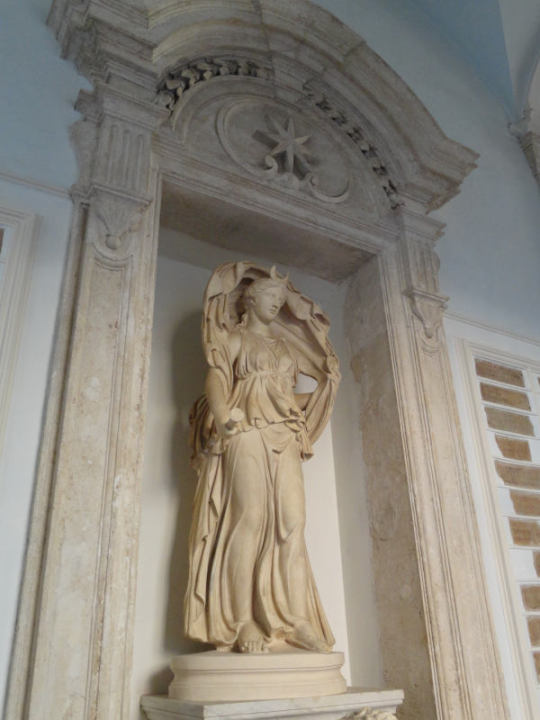

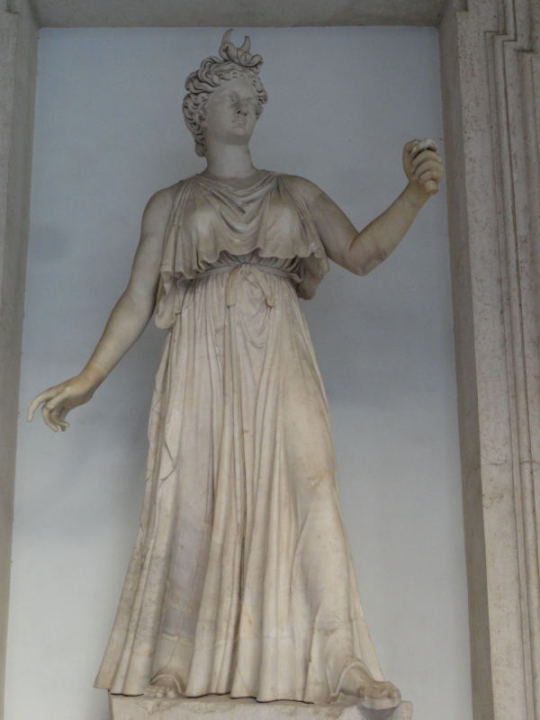
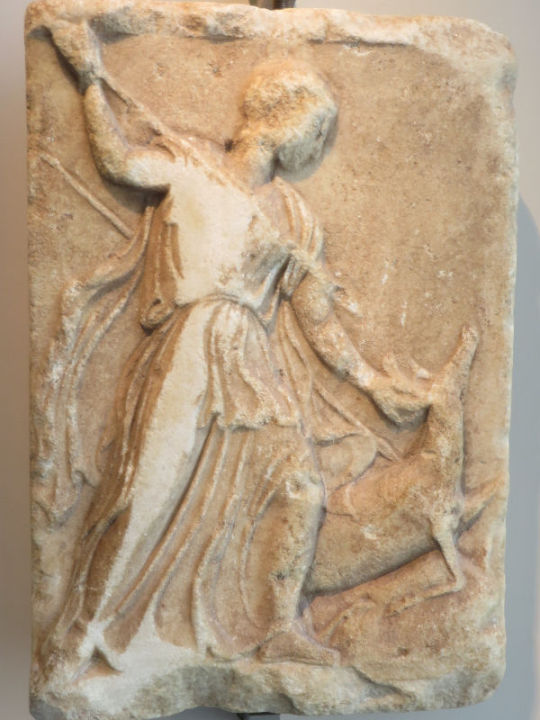



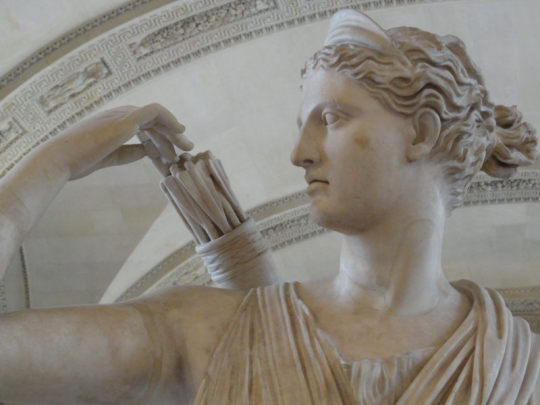
Ἄρτεμις / Diana
#dark academia#dark acadamia aesthetic#grey academia#classic academia#classical studies#classics#sculpture#museum photography#ancient greece#rome#poetry#homeric hymns#artemis#diana#greek mythology#classical mythology#mythology#ἐποίησα
448 notes
·
View notes
Text
Fundamental sources
Greek mythology is recorded in numerous texts, covering multiple centuries, locations, traditions and variations. Many of these ancient sources are lost to us, or fragmentary. This leaves us with an incomplete (albeit vast) and oftentimes incoherent collection of written sources on which to base my own work.
The sources which are considered by the ancient Greeks themselves as foundational and central to Greek mythology are essentially : the early Greek epic poets (amongst which is, of course, Homer), Hesiod (author of the famed Theogony, not counted as an epic poet) and the Homeric Hymns (called Homeric because they are written in the same language, style and meter as the Iliad and Odyssey). These texts were written down between the 8th and the 5th centuries BC, and are based on oral material that goes much further back.
Of the early epic poems, only the Iliad and the Odyssey attributed to Homer still survive, considered by the ancient Greeks as the pinnacle of their literature. Of all the other epics, only fragments and (if we're lucky) summaries remain. The Trojan Cycle was made of the following works :
The Cypria, which describes the origin and early years of the Second Trojan War
The Iliad, which tells of the wrath of Achilles and the death of Hector
The Aethiopis, which describes the intervention of Amazons and Ethiopians in the war, and the death of Achilles
The Little Iliad, a dense work that covers events from the funeral of Achilles to the episode of the Trojan horse
The Sack of Troy, which, as its title suggests, tells the events from the Trojan horse to the desctruction of the city and the anger of Athena
The Return from Troy, in which the Greek heroes return home, with tragic developments, such as the murder of Agamemnon and the revenge of Orestes
The Odyssey, tells the return of Ulysses, the longest and most adventurous return of all Greek heroes
The Telegony, that covers further adventures of Ulysses until he is killed by Telegonus, his son by Circe
To this we can add a Theban Cycle (covering the life of Oedipus, both Theban Wars and the revenge of Alcmaeon) and a few additional epics (including a Titanomachy I would have loved to read). Chances are high that there were many more, lost to us even by name.
Hesiod left us three complete works and a number of fragments, the most important of which is the Theogony, which describes how the universe began and the early history of the gods.
Lastly, the Homeric Hymns, of which three may be later additions, are poems or songs that praise the gods, each hymn being dedicated to a specific god.
In the context of my work, these sources will be taken as having the highest authority. Later sources will be accepted if they provide additional material that completes or extends the earlier texts, or if they help resolve an obvious inconsistency or impossibility.
#troy#ancient greece#classical mythology#greek gods#greek heroes#greek mythology#mythology#trojan war#thebes#epic cycle#homer#hesiod#homeric hymns
62 notes
·
View notes
Text
I shall recall, nor let me forget, Apollo who shoots from afar,
At whom the gods in Zeus's dwelling tremble as he goes.
μνήσομαι οὐδὲ λάθωμαι Ἀπόλλωνος ἑκάτοιο,
ὅντε θεοὶ κατὰ δῶμα Διὸς τρομέουσιν ἰόντα
-Homeric Hymn to Apollo (no. 3), lines 1-2
#quote#quotes#classics#tagamemnon#Greek#Greek language#Ancient Greek#Ancient Greek language#translation#Greek translation#Ancient Greek translation#poetry#Homeric Hymns#Greek religion#Ancient Greek religion#Hellenic polytheism#Apollo#Ancient Greece#Archaic Greece
122 notes
·
View notes
Text
Hera and Athena’s relationship is one of the most interesting and underrated in Greek mythology bc multiple sources say different things about their relationship that it could go either way.
In the Iliad and Argonautica they worked together, but with Heracles they worked against each other. According to Hesiod (and many others) Hera became jealous of Zeus when he “gave birth” to Athena, but Imagines (work by Philostratus) she rejoiced as if Athena was her own daughter.
Did they love each other but occasionally worked against each other? Did they hate each other but sometimes work together when their interests align? Is it a mix of both? Their relationship is complicated and that’s why I find it so fascinating.
#greek mythology#greek pantheon#hera#greek goddess#hera goddess#ancient greek mythology#athena#hera deity#athena goddess#athena goddess of wisdom#Argonautica#the iliad#homeric hymns
88 notes
·
View notes
Text
I wanted to address that no one uses the cult of Dionysus song because of the lead singer who is a groomer.
I can tell you there are other songs that captures the vibe but isn’t dedicated to Dionysus and some that do. You can listen to hymns as well which I highly recommend.
Some of these songs represent Dionysus and some don’t but they equally share a strong and joyful vibe.
43 notes
·
View notes
Text
ancient greek word of the day: σκυλακῖτις (skylakitis), protectress of dogs, of Artemis, Orph.H.36.12.
486 notes
·
View notes
Text
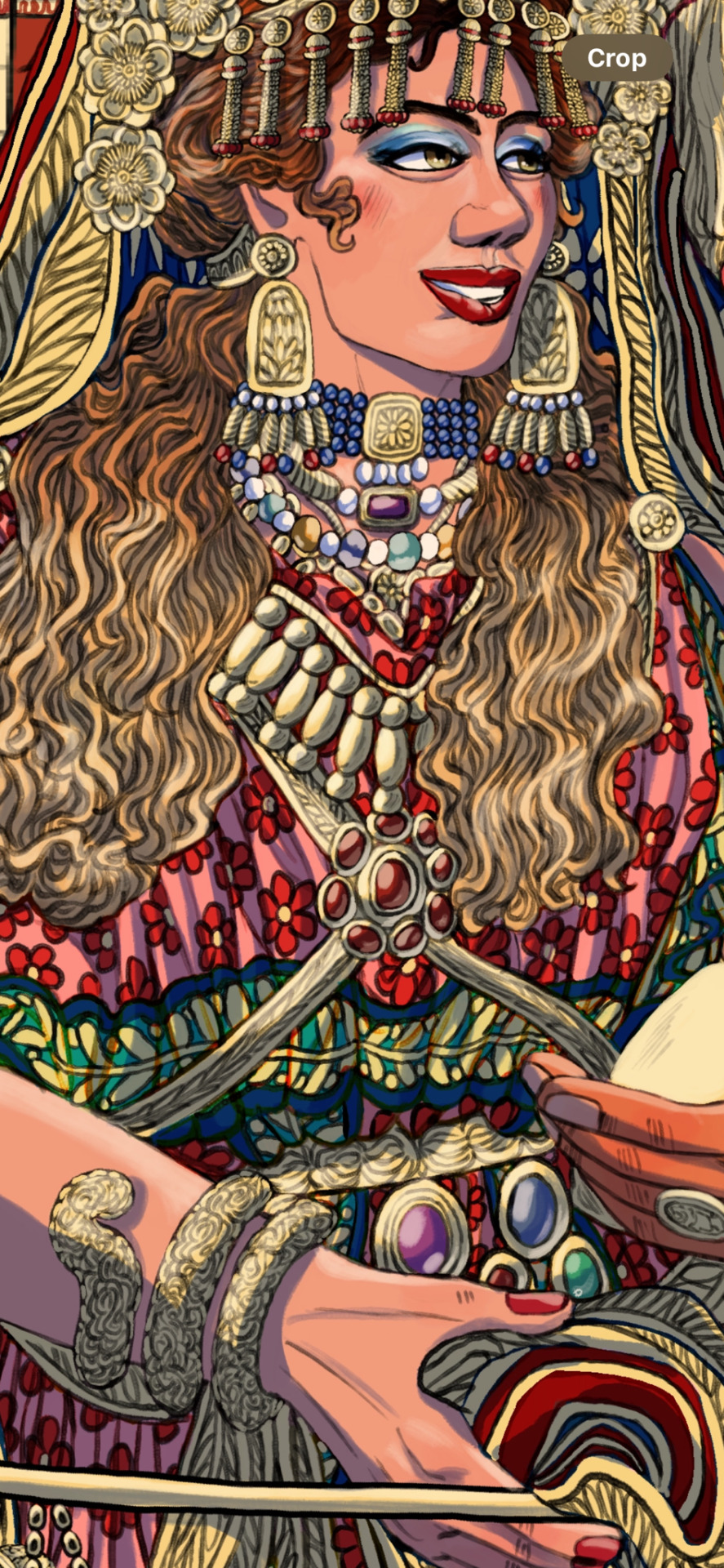
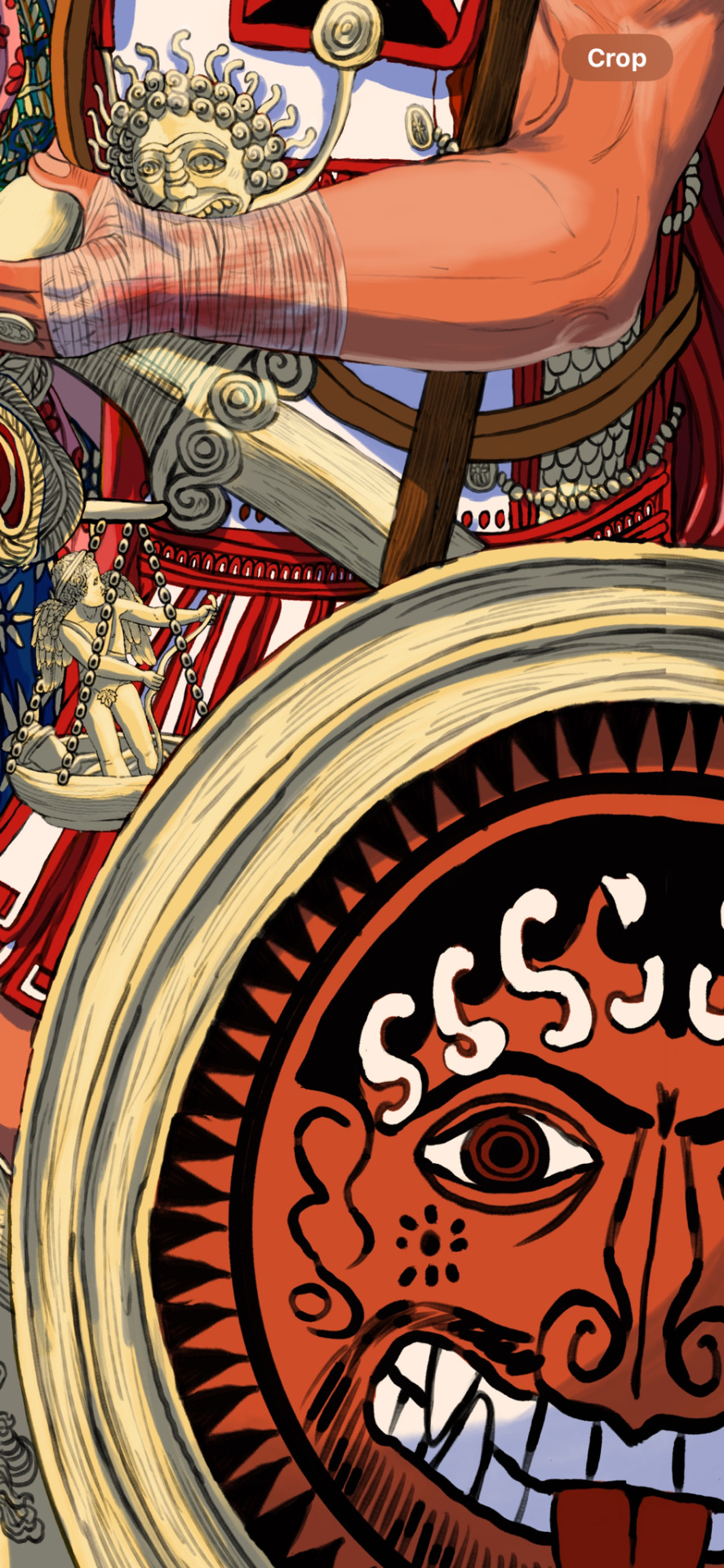
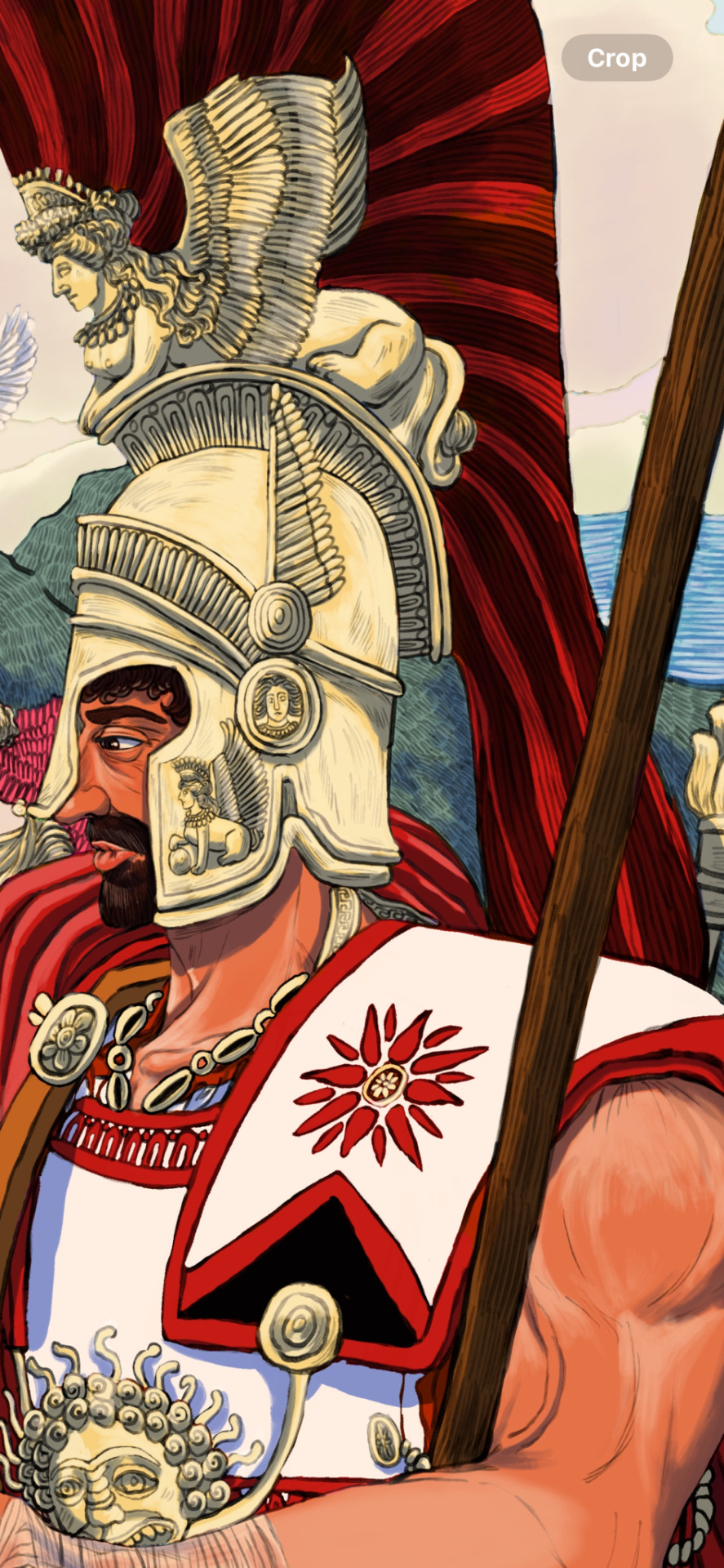

Closeup details of an Ares illustration entry that I made for my Sing O Muse zine contribution last year. Ares, in my version, is often hanging out with Aphrodite and the Graces, Hera + her daughters, and Poseidon the most, either for his warrior bodyguard duty or just running casual errands in his home. Zine is out now, so you better check them out and grab them while you can since they are still piping hot from fresh printing !!!!
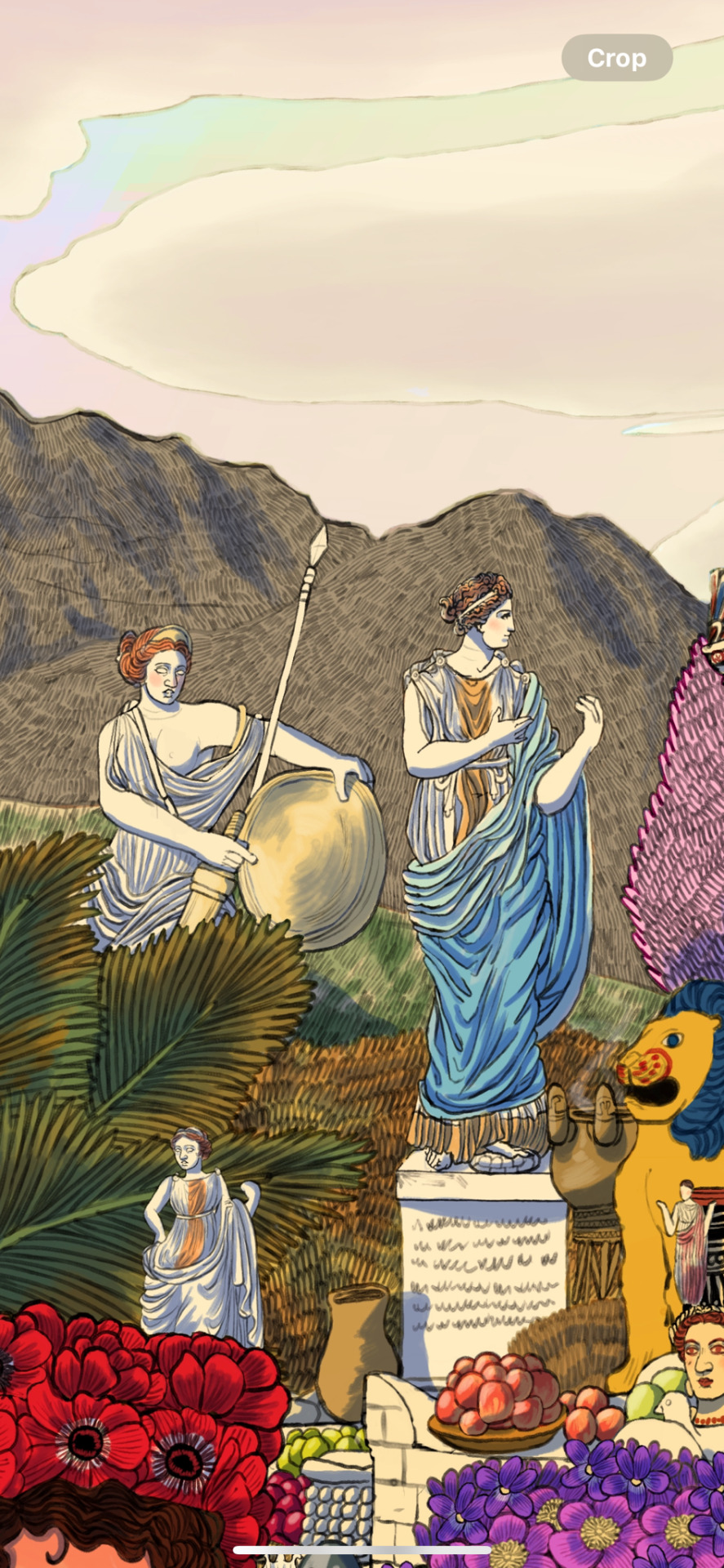

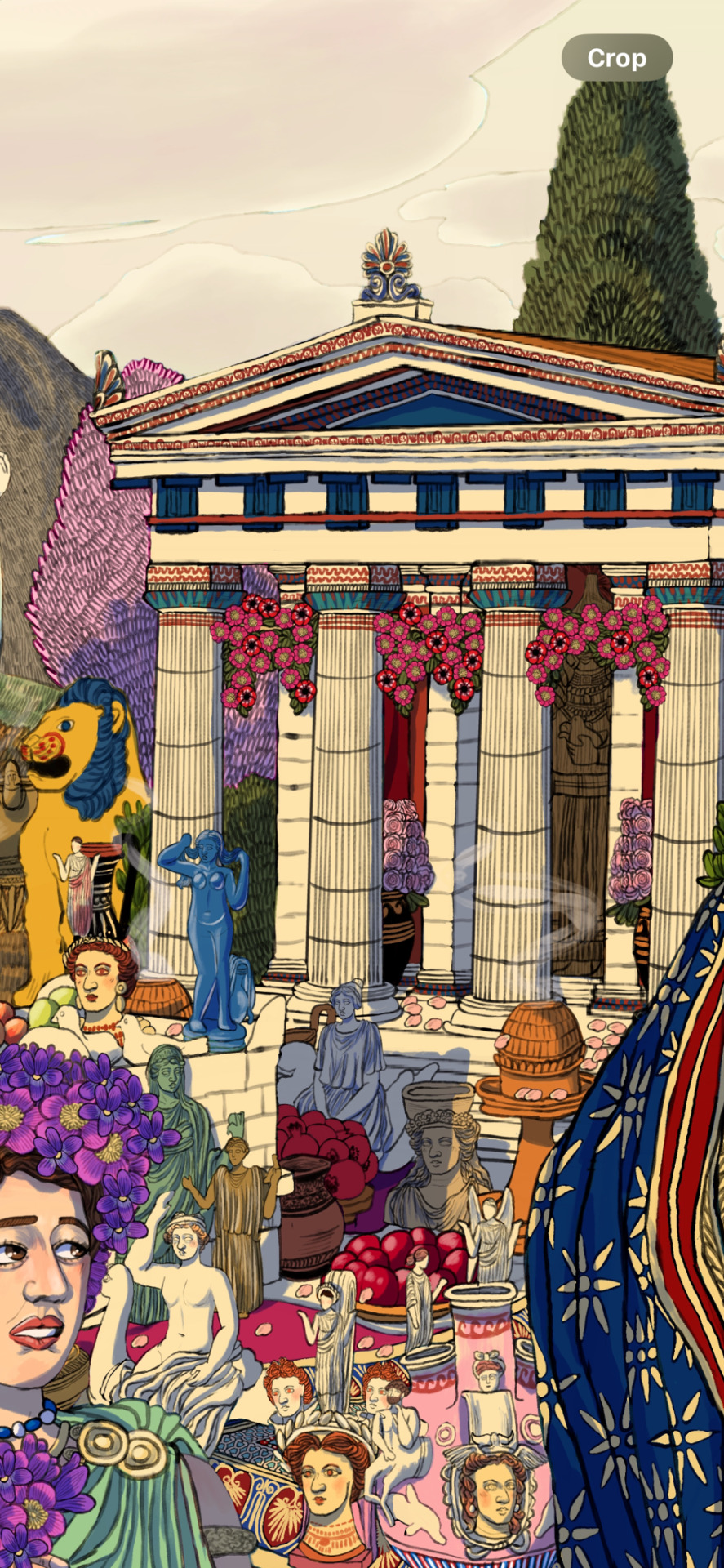
The temple background was that of Aphrodite Ourania in Kythera, one of the oldest structures dedicated to her located in mainland Greece dated from the 6th century BC, which was later converted into Agioi Anargyroi church (St. Cosmas & Damian) during Byzantine times.
According to legend, Aphrodite was born from the sea foam stranding to the seashores of Alvemonas Bay of Kythera first before arriving in Paphos, Cyprus. Aphrodite Ourania, as in her “heavenly love” aspect was depicted as an armed warrior goddess within this modest temple right here, and there are still fully preserved walls + niches within the current ruined building along with its Doric columns!!!!
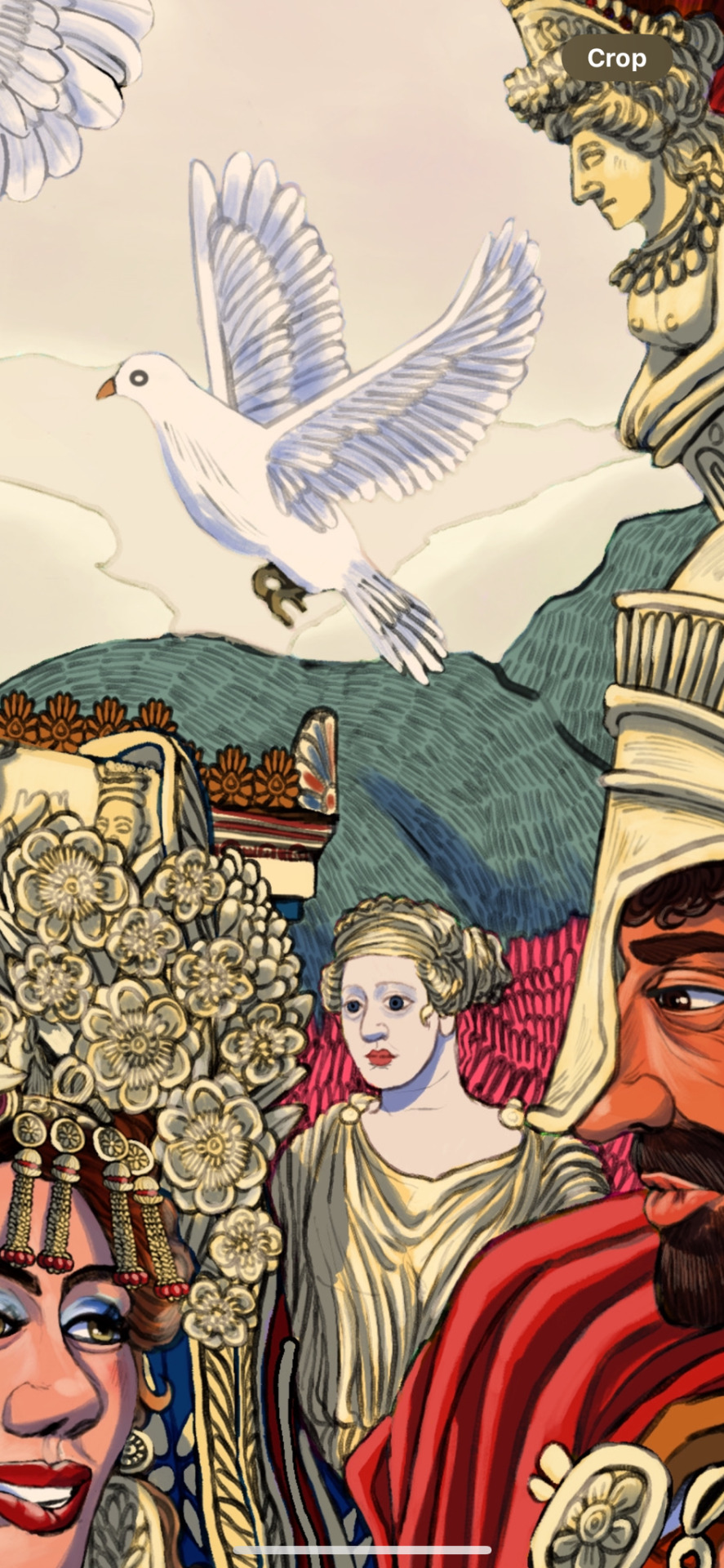
Over on the sight of the divine couple is another chryselephantine statue of Aphrodite Ourania herself, with her foot standing on a tortoise. Made out of gold & ivory, with black stone eyes and carved by the famed Phidias who was known for the Athena Parthenos and Athena Promachos in the Parthenon, Athens; as well as the statue of Zeus of Olympia. (I knew that this statue of Aphrodite Ourania would later be transferred to Elis, in the further northern region of Arcadia, but I still loved it to be standing there, tbh.)
#ares#aphrodite#ancient greek#my art#mars#venus#greek mythology#sing o muse#homeric hymns#the olympians#olympian gods#temple of aphrodite#kythira#avlemonas bay
13 notes
·
View notes
Text
From the imitators of Ovid Daily and copycats of E-pistulae, i bring you
Hom Hymn Daily
The newest e-mail newsletter bringing ancient literature to you every day! I thought it was high time to balance out all of those Latin authors with some Greek, so starting September 19th I will be sending out the Homeric Hymns, a collection of 33 ancient Greek hexameter hymns dating from anywhere between the 7th century BCE to the 4th century AD.
These hymns, in the style of Homer, praise a particular deity to whom they are dedicated, but also recount some of the best myths about the cosmos of the Olympian gods, such as divine births, founding of cult-places, and miraculous deeds.
There are five longer hymns which will be sent out in bits of 100 lines, but the shorter hymns will each get their own e-mail.
Join us now for:
Demeter causing the apocalypse
Apollo turning into a fat dolphin
Hermes farting and sneezing at the same time
Aphrodite catfishing a shepherd
-> subscribe here! <-
152 notes
·
View notes
Text
Hellenic Gods Fact Sheets and Hymns: Zeus
Zeus
Other Names: Jupiter, Jove, Kronion
Epithets: Agathos Daimon (good spirit), Basileus (king), Anax (king), Kronion (son of Kronos), Epidotes (giver of good things), Hypatos (most high), Sthenios (the powerful), Alastor (avenger), Alexikakos (averter of evil), Apemios (averter of evil), Amboulios (counsellor), Eubouleus (of good counsel), Koryphaios (leader), Areios (of war), Stratios (of the armies), Klarios (distributes by lot), Kosmetes (orders the cosmos), Panoptis (all-seeing), Astrapaios (of lightning), Keraunios (of thunder), Kataibates (descending [lightning]), Ikmaios (of moisture), Ombrios (rain-giver), Hyetios (of the rain), Aphesios (releasing), Meilichios (the gracious), Lykaios (of the wolf), Maimaktes (the boisterous), Moiragetes (leader of fate), Nomos (of the law), Xenios (of strangers), Phyxius (of refuge/banishing), Olympios (the Olympian), Polieus (protector of the city-state), Morios (of olive trees), Panhellenios (of all Greeks), Skotitas (the dark), Teleios (of marriage), Soter (savior), Sthaenios (strong), Katharsios (purifying), Epoptes (overseer), Invictus (invincible), Pangratis (all-powerful).
Domains: Storms, the sky and atmosphere, political power, dominion, sovereignty, rulership and kingship, divine counsel, law and justice, cosmic order, fate and destiny, maintaining oaths and xenia, avenging the wronged.
Appearance: A powerful and well-built older man with tanned skin, long stormy-gray hair and beard, and piercing blue eyes. He wears a sky blue or dark blue cloth around his waist. His aura is stormy-blue.
Sacred Days and Festivals: The Olympic Games. Theogamia (27 Gamelion). Pandia (17 Elaphabolion). Demokratia (12 Boedromion). Olumpeia (19 Mounuchion). Bouphonia (14 Skirophorion. Diasa (23 Anthesterion).
Symbols/Attributes: Thunderbolt, throne, scepter, the Aegis.
Sacred Animals: Eagle, bull, swan, goat (to a lesser extent), cuckoo, wolf
Sacred Plants: Oak, olive
Elemental Affinity: Air
Planet: Jupiter
Colors: Blue, white, yellow, gold, purple.
Crystals: Diamond, clear quartz, smoky quartz, opal, lapis lazuli
Incense: Frankincense, sage, vervain.
Tarot Cards: The Emperor, The Wheel of Fortune, King of Swords
Retinue: Hermes, Nike, Kratos, Zelos, Bia, Themis, Iris, the Moirai, the Horae, Hestia, Ganymede, Hebe, Pegasus, Metis (technically?).
Associated People: Kings, lawmakers, strangers and immigrants.
Offerings: Animal fat and bones, whiskey, cinnamon, oak leaves, storm water, eagle figurines, donations to eagle conservation or climate change research.
Syncretized With: Ammon, Osiris (Sarapis), Taranis, Perun, Indra, Sabazius.
Hymns to Zeus
Homeric Hymn 23 to Zeus
I will sing of Zeus, chieftest among the gods
and greatest, all-seeing the lord of all,
the fulfiller who whispers words of wisdom
to Themis as she sits leaning towards him.
Be gracious, all-seeing Son of Kronos,
most excellent and great.
Orphic Hymn to Zeus
Of Zeus much-honor’d, Zeus supremely great,
To thee our holy rites we consecrate.
Our pray’rs and expiations, king divine,
For all things round thy head exalted shine.
The earth is thine, and mountains swelling high,
The sea profound, and all within the sky.
Kronion king, descending form above,
Magnanimous, commanding, sceptered Jove;
All-father, principle and end of all,
Whose pow’r almighty shakes this earthly ball;
Even Nature trembles at thy mighty nod,
Loud-sounding, arm’d with light’ning, thund’ring God.
Source of abundance, purifying king,
O various-form’d from whom all natures spring;
Propitious hear my pray’r, give blameless health,
With peace divine, and necessary wealth.
Orphic Hymn to Zeus Astrapaios
I call the mighty, holy, splendid light,
Aerial, dreadful-sounding, firey bright,
Flaming, aerial-light, with angry voice,
Lightning thro’ the lucid clouds with horrid noise.
Untam’d, to whom resentments dire belong,
Pure, holy pow’r, all-father, great and strong,
Come, and benevolent these rites attend,
And grant my days a peaceful, blessed end.
Orphic Hymn to Zeus Keraunos
O Father Zeus, who shak’st with firey light
The world, deep-sounding from thy lofty height:
From thee, proceeds th’ ethereal lightning’s blaze
Flashing around intolerable rays.
Thy sacred thunders shake the best abodes,
The shining regions of th’ immortal gods:
They pow’r divine, the flaming lightning shrouds,
With dark investiture, in fluid clouds.
‘Tis thine to brandish thunders strong and dire,
To scatter storms, and dreadful darts of fire;
With roaring flames involving all around,
And bolts of thunder of tremendous sound.
Thy rapid dart can raise the hair upright,
And shake the heart of man with wild affright.
Sudden, unconquer’d, holy, thund’ring God,
With noise unbounded, flying all abroad;
With all-devouring force, entire and strong,
Horrid, untam’d, thou roll’st the flames along.
Rapid, ethereal bolt, descending fire,
The earth all-parent, trembles at thy ire;
The sea all-shining; and each beast that hears
The sound terrific, with dread horror fears:
When Nature’s face is bright with flashing fire,
And in the heavens resound thy thunders dire.
Thy thunders white, the azure garments tear,
And burst the veil of all surrounding air.
O Zeus, all-blessed, may thy wrath severe,
Hurl’d in the bosom of the deep appear,
And on the tops of mountains be reveal’d,
For thy strong arm is not from us conceal’d.
Propitious to these sacred rites incline,
And crown my wishes with a life divine:
Add royal health, and gentle peace beside,
With equal reason, for my constant guide.
Disclaimers: Descriptions of the gods’ appearances are purely a record of how I personally see them. Gods are shapeshifters that can appear however they wish, and will be perceived differently by different people. My own perceptions of them may or may not match ancient artwork.
Correspondences listed are mostly modern.
Festival dates are based on the Attic calendar.
Offerings listed are all specific to the deity in addition to standard ones.
Translations of hymns are from Theoi unless otherwise specified.
Sources:
THEOI GREEK MYTHOLOGY, neosalexandria, HellenicGods.org, κοράκι/crow’s grimoire
#zeus#zeus god#zeus greek god#zeus greek mythology#greek gods#greek mythology#olympians#twelve olympians#fact sheets#hellenic pantheon#hellenic paganism#hellenic deities#hellenic polytheism#ancient greek hymns#homeric hymns#orphic hymns#helpol
96 notes
·
View notes
Text

To the Sun , Proklos (ancient greek philosopher)
10 notes
·
View notes
Text
Dyonisus themed orgy with masks and costumes and ritualistic dancing and singing and wine and religious frenzy WHEN???? The masks are very important . And so is the singing .
#contemplating giving up on my life long dream to become a therapist to presue my life ling dream of becoming a cultist#anyway i am and will propetually be obsessing over how things where pronounced in ancient greek poetry . i will gouge my eyes out if i dont#at some point in my life have full knowlage of what hymn they sang at the og dyionisan cermonies#ancient greece#dyonisus
12 notes
·
View notes
Text
Homeric Hymn 19, "To Pan"
From the poll I did, it looks like most people are in favor of my posting this. I hope you enjoy it.
Tell me, Muse, of the dear offspring of Hermes: goat-footed,
Two-horned, lover of noise, who goes in company
With the dance-rejoicing nymphs through the tree-covered meadows,
And they tread the heights, down from the steep rock,
Calling on Pan, the shepherd god, of shining locks,
Shaggy, who has as his lot every snowy crest,
And the mountains’ peaks, and the stony heights.
Here and there he goes through the dense thickets,
Drawn at one moment by the gentle streams--
Another time in turn he wanders the dizzying rocks,
Ascending the highest peak, a place to watch the flocks.
Many a time he runs through the tall and gleaming mountains,
Many a time he drives beasts through the foothills, slaying them,
Looking fiercely. But only at evening he makes a noise,
Coming back from the hunt, playing a lovely tune
With his reeds; that bird could not outstrip him in melodies
That, among the leaves of much-flowering spring, performs
Her song with honeyed voice, running through her lament.
Then with him the mountain nymphs with high-pitched voices,
Going about, dance with close-packed steps beside
The spring that gives dark waters: Echo groans around
The mountaintop. The god, dancing here and there,
At times slipping into the middle, rules himself
With his feet in close time: on his back he has a tawny
Lynx’s pelt; he delights at heart in the piercing songs,
There in the soft meadow, where the crocus and sweet-smelling
Hyacinth bloom and mingle freely with the grass.
They hymn the blessed gods and high Olympus: but
Above all they tell of Hermes, the sprinter, who excels
The rest: how he’s swift messenger to all the gods,
And how he came to Arcadia, rich in fountains, mother
Of flocks, where a precinct lies of him as Cyllenian.
There, god though he was, he took to herding flocks
With their rough fleeces at the house of a mortal man:
For watery desire came upon him and bloomed
To mingle in love with Dryops’ fair-haired nubile daughter.
He brought the fertile marriage to pass, and in the halls
She bore a dear son to Hermes, a monstrous thing to see
Right off, goat-footed, two-horned, noise-lover,
Sweetly laughing: his mother leapt up and fled,
His nurse abandoned the child right then, for she feared,
When she saw his face—unappealing, well-bearded.
Forthwith sprinter Hermes took him up in his hands--
The divine being rejoiced exceedingly in his mind.
He went right away to the immortals’ seats, concealing
The child in close-wrapped skins of a mountain-dwelling hare:
He sat beside Zeus and the other immortals and showed them
His son: all the immortals were delighted in their spirits,
First and foremost Dionysos, known as Bacchus.
They called him Pan, because he pleased the hearts of all.
And you, thus, rejoice! With a song I seek your favor--
But I shall think of you and another song as well.

Sweet, piercing sweet was the music of Pan's pipe, Walter Crane, 1910s
#classics#tagamemnon#Ancient Greece#Greek#Greek language#Ancient Greek#Ancient Greek language#translation#poetry#poetry in translation#Greek translation#Ancient Greek translation#Homeric Hymns#God Pan#Greek religion#Ancient Greek religion#Hellenic polytheism#Walter Crane
55 notes
·
View notes
Text
I feel like ppl either over-hate or over-love Persephone x Hades. I’m more in the middle where I enjoy it when it’s done well but dislike it when it’s not and I feel both sides need to chill out.
#greek mythology#greek pantheon#greek goddess#ancient greek mythology#persephone deity#persephades#persephone#hades deity#hades#hades game#hymn to demeter#homeric hymns
44 notes
·
View notes
Text
τό δέ σῶμα αὐτοῦ ἀλινδεῖται,
ἐκ τοῦ ὤμου ῥαγὲν·
ἀκούσεις δὲ τὰ ὀστᾶ ὑμνοῦντα,
ἐν τροπῷ τοῦ τρήματος ᾆδοντα.
"and his body rolls over,
crushed from the shoulder;
you can hear the bones humming,
singing like a puncture."
coil - ostia (the death ov pasolini)
#took liberties with this#υμνεω means to sing a hymn but i thought that was nice#ancient greek#tagamemnon#coil#coil music#john balance#peter christopherson#horse rotorvator#langblr#ancient greek language#some ov the accents are wrong cuz my keyboard so ass
34 notes
·
View notes
Text
prayer submission
hiii helpol communityyy
i wanted to put out a call for like, prayers/hymns you guys have really liked, created, etc., because i'm filling up a journal with them. i'm specifically looking for prayers/hymns about:
helios - ariadne - callisto - pythia - hestia - atlas - the muses
i am open to other ones too, i'd love if y'all shared! poetry/hymns are probably one of my fave things in any practice. maybe it's the christian in me, but devotion through word and art is so important to me.
please, don't be shy or scared!! i will be posting some of mine later but i have to type out my shaky handwriting first lmao.
thank you!
💚
#hellenic polytheistic#pagan#ancient greek mythology#hestia worship#hestia#ariadne#ariadne worship#atlas worship#helios#helios worship#callisto#callisto worship#pythia#pythia worship#the muses#the muses worship#the mousai#the mousai worship#prayers#hymns#art
16 notes
·
View notes